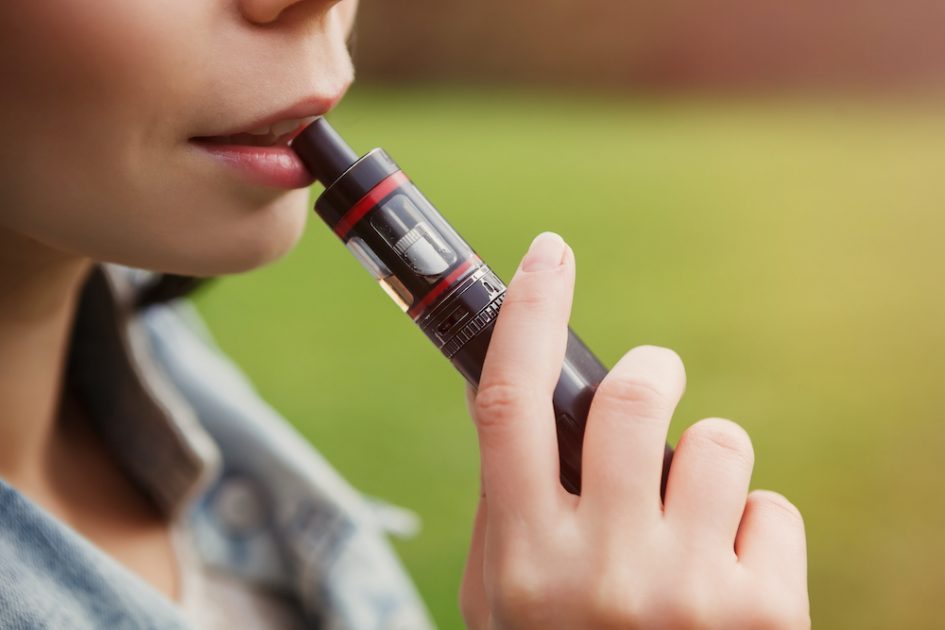Smoking Personal Finance Guide

Many smokers have switched from cigarettes to vaping because they believe it’s healthier and easier for their lungs. The CDC supports this, saying that people who switch to e-cigarettes experience greater lung capacity and fewer instances of sinus irritation.
Still, e-cigarettes are classified as tobacco products by many insurance companies. As a result, vapers may find that applying for life insurance can be just as complicated as if they were still smoking regular cigarettes.
Luckily, life insurance companies have different internal protocols, which is excellent news for some vapers. This means that a handful of life insurance carriers may offer e-cigarette users non-smoker rates on a per-case basis.
This guide will help clear up the general confusion around life insurance rates for e-cigarette users. We’ll talk about how vaping affects your life insurance rates and what you can do to get better policy rates.
Do I Have To Tell My Provider I Smoke?
Many insurance applicants may be tempted to withhold the truth about their smoking and vaping habits because of how it impacts their premiums and coverage. However, honesty is the best policy for all tobacco users.
Consider this: life insurance agents can only find you well-fitting policies if they understand your health and lifestyle. Furthermore, life insurance companies are likely to find out that you withheld this crucial bit of information either through medical exams or documents. This could result in death benefits being withheld, leaving your loved ones empty-handed.
Smokers and non-smokers alike are assessed by life insurers based on the results of a medical exam. These exams usually include a urine or blood test to give life insurance agents a good idea of a person’s long-term health when combined with their family history, habits, and general lifestyle.

How E-Cigarettes Affect Life Insurance
Aside from potential long-term health consequences, one of the unintended effects of vaping is how it impacts your life insurance coverage. Luckily, most life insurance companies haven’t standardized the way they price their policies for vapers. This means that there may be some leeway on your policy, depending on what you smoke.
Vaping vs Smoking
Many people that use this smoking cessation tool have the same question: is vaping any better than smoking? A typical life insurance company would say that there isn’t a huge difference. This is because life expectancy is the basis for every life insurance policy, and smokers (cigarettes or otherwise) are statistically more likely to experience negative health effects and die earlier.
However, this doesn’t wholly explain why vaping results in a higher life insurance quote.
By nature, a life insurance company is risk-averse, which means that they’ll take steps to secure themselves against “risky” clients. Because there is relatively little research on vaping and its effects, a typical insurance provider may be reluctant to give non-smoker rates to applicants who vape. The only exception to this rule is when applicants use vaping liquids with 0% nicotine content.
Vaping THC Oil
Smoking marijuana (which contains THC) gives mixed results when you’re applying to a standard insurance company. This is true whether users prefer to smoke conventional marijuana cigarettes or with a vape pen.
Many life insurers consider marijuana users to be in their own category apart from smokers. This categorization can result in marijuana smokers receiving life insurance rates akin to a non-user, depending on frequency and legality in the policyholder’s state.
Casual or infrequent users of THC oils may qualify for non-smoking rates, but applicants who show signs of substance addictions may face steep premium hikes or be denied outright.

Policy Rates For Vapers
Regardless of which policy you end up choosing, your whole life or term life insurance rates are subject to a few considerations. This largely depends on your medical exam results and general tobacco use.
More specifically, how often an individual uses tobacco products determines two things: whether they’re classified as a smoker/vaper or a non-smoker, and what their life insurance classification is.
Smokers vs Non-Smokers
Insurance companies in the United States generally have their own definitions of what makes a person a smoker, but these can be quite technical and complicated. To address this, this next section provides a bit of insight into how insurance companies evaluate clients.
Keep in mind that the following information does not cover every insurance provider. We still recommend checking in with your life underwriter for more accurate rates.
Smokers
Naturally, people that smoke tobacco products are considered smokers by insurance companies in the United States. By definition, this also includes vapers.
However, they aren’t the only individuals labeled this way during the underwriting or risk-assessment process. Here are some other forms of nicotine use that will qualify you for smoker rates:
- Cigars
- Hookahs
- Chewing tobacco
- Dissolvable tobacco
- Nicotine replacement products (patches, lozenges, inhalers)
There is some good news for infrequent smokers: individuals that smoke once or less each month don’t have to deal with higher life insurance prices. Therefore, a 35-year-old casual smoker with a 20-year policy can expect to pay significantly less than a regular smoker would with a similar policy and age group.
Non-Smoker
A non-smoker simply refers to a person that has never had a history of tobacco use or other nicotine products. Former smokers may also be able to qualify for non-smoker rates if they haven’t smoked for a period of time.
While every insurance company has different definitions, quitting cold turkey doesn’t immediately make someone an ex-smoker. In fact, many life insurance companies require users to have stopped using tobacco products for 12 months to two years before they’re eligible for re-classification. One of the reasons an insurance provider may wait this long is to test the permanence of the lifestyle change.

Life Insurance Classifications
Something all applicants will have to deal with is the underwriting process. During this process, underwriters look at your medical exam results, health history, policy type, death benefit, and desired life insurance coverage to calculate your life insurance premiums.
This process results in each applicant being given a rating that represents their general health and risk level. According to underwriting guidelines, applicants may be classified as:
- Preferred Plus: Excellent health, ideal BMI, outstanding family history
- Preferred: Very good health but with some medical issues
- Standard Plus: Good health, less-than-ideal BMI, adequate family history
- Standard: Not ideal BMI, complicated family history
- Substandard: Complicated family health history and recent severe medical complications
A highly-rated, physically fit 40-year-old with a 20-year policy can expect to pay significantly less than someone one classification below them for a similar policy.
How Do I Improve My Policy Rates?
Smoking or vaping is one of the main things that can inflate your life insurance fees, but there are still ways to get the coverage and death benefit you need:
Consider Quitting Smoking
The most obvious solution to inflated rates is to simply quit smoking, although this is something that’s much easier said than done. Many people may find lower rates to be a great incentive to cut down on vaping and other forms of nicotine intake. Young applicants can also apply one or two years in the future without the fear of age-related rate increases.
On the other hand, vapers that prefer using their e-cigarettes for THC might achieve the same result by cutting back on their intake instead of complete cessation.

Opt-In For Insurance Provided By Your Employer
If you can’t quit smoking, employer life insurance options are something you should consider exploring. Group plans aren’t typically split into smoking/non-smoking categories and don’t usually require medical exams, which means applicants could sidestep the underwriting process altogether.
This option is simpler than getting an individual policy, but there is one major drawback. Group plans are non-transferable, meaning that you’re likely to lose your coverage if you leave your employer or retire.
Work With An Independent Life Insurance Agent
Despite the multitude of online services and insurance quote tools, applicants that enjoy vaping may not get accurate rates because of their complicated situation. The rules around vaping aren’t universal, and it can be time-consuming to find the right insurance provider.
Working with an independent life insurance agent can benefit you in this case. Independent agents are usually well-versed with policies from several companies, meaning that they can provide valuable insight into the best plan for you and save you lots of time and money in the long run.
Conclusion
Vaping has become increasingly popular because of its reputation of being the “healthier alternative” to traditional cigarettes. Despite this, insurance providers tend to prince vapers’ policy rates similarly to smoker rates. However, there are alternatives and exceptions that every vaper can consider undertaking to achieve better premiums.
The easiest way to find the best policy is to work with a professional. Contact us at Wesley Insurance, LLC to find out how we can help you!